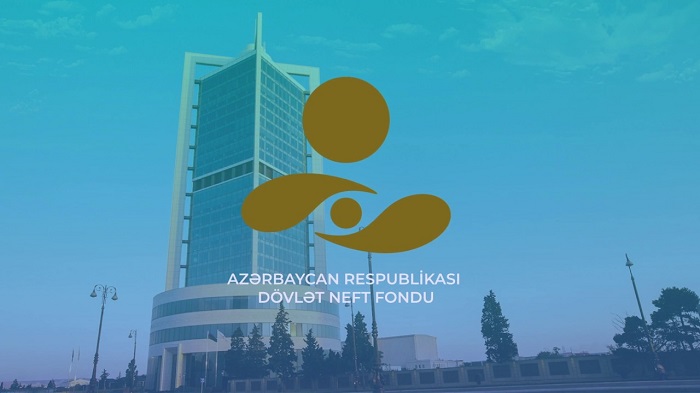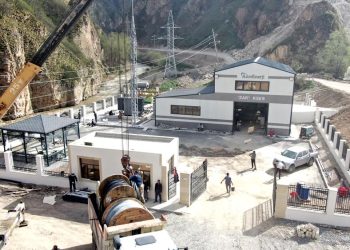 The dispute between BP Georgia, its Human Resources Recruitment Agency (HRRA), and HRRA-contracted employees might soon shift from the Ministry of Labor, Health and Social Affairs of Georgia to the Civil Court of Georgia. There are already two lawsuits against BP and one against its contractor-recruitment agency accusing them of discrimination in the workplace, violation of freedom of expression and violation of freedom of assembly and association.
The dispute between BP Georgia, its Human Resources Recruitment Agency (HRRA), and HRRA-contracted employees might soon shift from the Ministry of Labor, Health and Social Affairs of Georgia to the Civil Court of Georgia. There are already two lawsuits against BP and one against its contractor-recruitment agency accusing them of discrimination in the workplace, violation of freedom of expression and violation of freedom of assembly and association.
In August 2015, BP employees hired through the HRRA requested their employers review their salaries and adjust them according to the inflation and GEL devaluation rate (45%) in Georgia. Notable is the fact that BP had approved the same salary review and correction in Azerbaijan, another country of the AGT (Azerbaijan-Georgia-Turkey) Region, and satisfied their employee’s demands. In Georgia, all of the requests from employees were denied; moreover, health insurance was reduced from 100% coverage to 80%. Disappointed, the group of employees created a primary union under the Georgian Gas and Oil Workers Trade Union (a GTUC affiliate) to defend their legal rights.
Unionization was not taken well by either BP or their HRRA authorities. BP country head Chris Schlueter, who is experienced working with Labor Unions, gave his consent to HRRA Director Nodar Shurghaia, who forwarded an e-mail to all employees saying that “BP’s preference is for HRRA employees not to join the Union”. Such negative indication from company top management was considered a blunt form of coercion by many of the employees, who, as a result, decided not to join the Primary Labor Union or to leave if they had already enlisted. The remaining employees who were brave enough to “go against the threat and moral pressure” joined ‘Pipeline Union’ – a professional organization of laborers working for the HRRA and for all South Caucasus region energy carriers.
Since it is mandatory for an employer to engage in collective bargaining with a trade union, in case the latter comes forward with such an initiative (Article 41, #4, Georgian Labor Code), the Committee of the Pipeline Union (affiliate of the Georgian Gas and Oil Industry Workers Trade Union) prepared a draft agreement with the terms and conditions, in accordance with Georgian Law, and forwarded it to their employers for review and approval.
BP and HRRA lawyers have dragged out the process and have yet to sign the agreement. In the draft collective bargaining, the employers’ put such conditions that made it impossible for union members to arrange meetings. In particular, they highlighted in the agreement that union members could meet during working hours only and their time spent on labor union affairs would not be reimbursed. Since most of the union members, as well as the committee members, work in different regions of Georgia, the limitation of two hours made it impossible for union members to organize a meeting. There was willingness to meet after working hours but the employer determined that the meeting room would not be accessible for employees after working hours. After 11 months and numerous attempts from the Union, the collective bargaining has still not been signed between the parties.
When the Pipeline Union faced such an organized level of coercion from BP and their recruitment agency, they decided to use their legal right and referred to the Ministry of Labor, Health and Social Affairs (MoH) of Georgia for help, asking the government for official Labor Dispute Mediation. Although BP refused to participate in the mediation, HRRA agreed and attended the mediation opening on July 14.
11 demands were reviewed and preliminarily agreed on by participants of the mediation but within two weeks the employers had broken off the talks. As the Head of the Department of Labor and Employment Policy of MoH, Elza Jgerenaia, stated in her official letter (N01/77433) to the Pipeline Union, management of HRRA Ltd. had “challenged the lawfulness of the government mediation process and, despite our numerous efforts to meet with company management to continue the negotiations, it has been impossible to do so.”
“It is regrettable when a British company, whose country is the founder of the first Trade Union, employs such methods of coercion and, when challenged, avoids negotiation of any kind,” said Vakhtang Pirmisashvili, Deputy Chairman of the Pipeline Union. “Doubting a country’s governmental regulations and blaming them for unlawfulness leaves me totally speechless.”
Following the above-mentioned letter from the HRRA director and BP country manager, some of the BP middle management authorities started “friendly talks” with their HRRA-contracted employees, emphasizing the disadvantages of joining the Labor Union and citing lower chances for career development and progression. Disciplinary actions were attempted against the Deputy Chairman of the Pipeline Union over several months, resulting in a so-called “reorganization” and dismissal. The legality of the dismissal is currently under civil court review.
“Pipeline Union members tried to use all legal means to protect their rights, without any success, leading to Pirmisashvili suing BP and HHRA in Civil Court for violation of freedom of expression and discrimination in the workplace,” said Gocha Kvitatiani, Head of Georgia’s Gas and Oil Industry Workers Trade Union. “The Pipeline Union Committee supports Mr. Pirmisashvili and hopes that the Georgian Civil Court will consider the factual circumstances of the case independently and impartially and deliver a fair judgment.”
Eteri Matureli, Vice President of the Georgian Trade Unions Confederation (GTUC) says: “BP and their [Recruitment] Agency have committed inconceivable actions against their unionized employees. This case is subject to review in the Annual Report of the Georgian Trade Union Confederation to the Committee of Experts and the Committee on Freedom of Association of the International Labor Organization (ILO), Geneva, Switzerland. The case has also been reported to the experts who draft the annual Human Rights report of the US State Department, to be published in spring 2017. It will also be brought to the attention of the Public Defender of Georgia (Ombudsmen) as it considers the obvious facts of discrimination in the workplace.”
GEORGIA TODAY received the following comment from BP representatives: “BP fully respects an individual’s right to join a Trade Union and, when they do so, commits to work within the law and in good faith with them. However, BP expresses preference to work with the employees directly without an additional administration layer. The case is in court and we are waiting for its lawful conclusion. Please note that the unionized employees are not BP employees.”
The Georgia Trade Union Confederation











